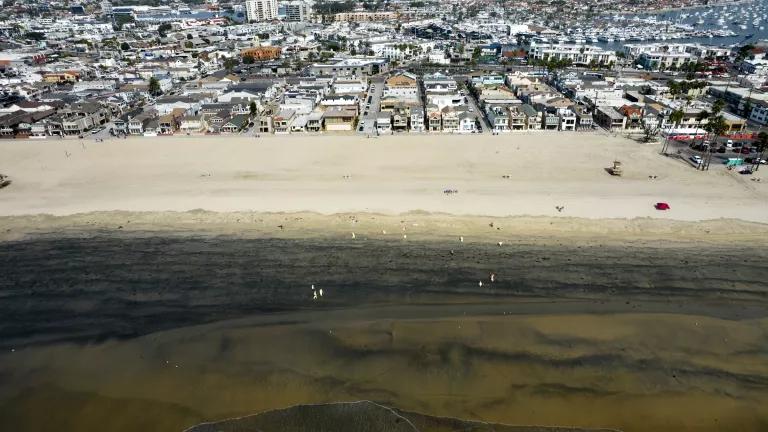Governor Newsom, California Needs SB 1
The bill addresses the need for California to provide clear direction to state agencies that the state can and must block reckless rollbacks of long-standing federal policies by an exploitative Trump administration hell-bent on undermining protections for California’s workers, air, water, wildlife and endangered species.

Senate Bill 1, the California Environmental, Public Health and Workers Defense Act, passed the state legislature by an impressive majority in the wee hours of the morning of September 14th. These legislators understand the need for California to provide clear direction to state agencies that the state can and must block reckless rollbacks of long-standing federal policies by an exploitative Trump administration hell-bent on undermining protections for California’s workers, air, water, wildlife and endangered species.
So it is particularly perplexing and deeply disappointing that Governor Newsom, who ran on a platform of defending against a reckless President Trump, quickly announced his opposition to the very section of the bill that directly affects the federal Central Valley Project. The reason the Governor gives for his opposition does not ring true. In this instance, Governor Newsom and his advisors seem to have fallen prey to the very ill SB 1 is fighting against: relying on false narratives pushed by a few powerful interests as the excuse for slashing public protections.
First, the Governor's announcement incorrectly states that SB 1 “limits the state’s ability to rely upon the best available science to protect our environment.” On the contrary, the point of the bill is to require the state to use the best available science to update state policies when federal rollbacks are based on bogus or no science. For example, in the hotly-contested endangered species section of SB 1, the language requires the state to ensure that state protections adopted to protect against federal endangered species rollbacks comply with the explicit directive in the state Endangered Species Act to make “determination[s] based on the best scientific and other information that is reasonably available.” Fish & Code sec. 2081(c). The Governor’s advisors who negotiated this language in SB 1 and are charged with enforcing the state ESA are surely aware of this requirement.
Second, the Governor's announcement states that SB 1 does not “provide the state with any new authority to push back against the Trump Administration’s environmental policies.” Again, the point of SB 1 is to codify practices, and provide clear direction to state agencies to regularly review federal rollbacks and to quickly backstop those rollbacks with state regulations where needed to maintain the status quo. Acting quickly is critical here, as it often takes state agencies several years to develop and implement new policies. That means the state’s air quality, water quality, and endangered species may suffer for years under Trump rollbacks without the emergency rulemaking authority of SB 1.
In addition, while state agencies may have the authority to develop protections for the state, they are not reliably exercising that authority when needed. In just one example, the federal Interior Department, under the leadership of the former lobbyist of the Westlands Water District, is planning to defy existing endangered species requirements right now by providing less water through the Delta than is called for in existing state and federal permits. The state Department of Fish and Wildlife has authority to require the federal Central Valley Project to comply with that state permit, and three previous state administrations have exercised that authority. But, to date, DFW has said nothing about this planned violation. And we know that many worse exceedances are coming soon from the federal Central Valley Project.
The Trump Administration is bringing this fight to the State. The question is whether the State will fight back to protect its own people and natural resources from baseless, unscientific rollbacks at the federal level. We are grateful to Senator Atkins and the legislature on behalf of the people of California for answering this question with a resounding “yes.” Governor Newsom should as well.


